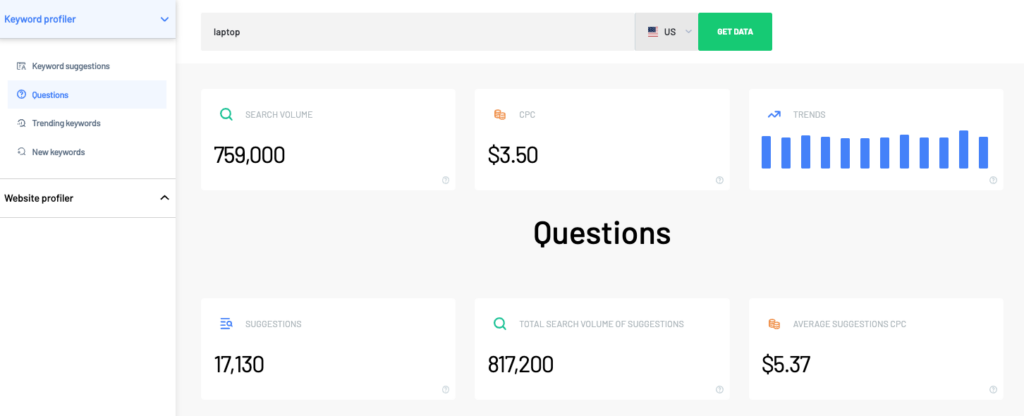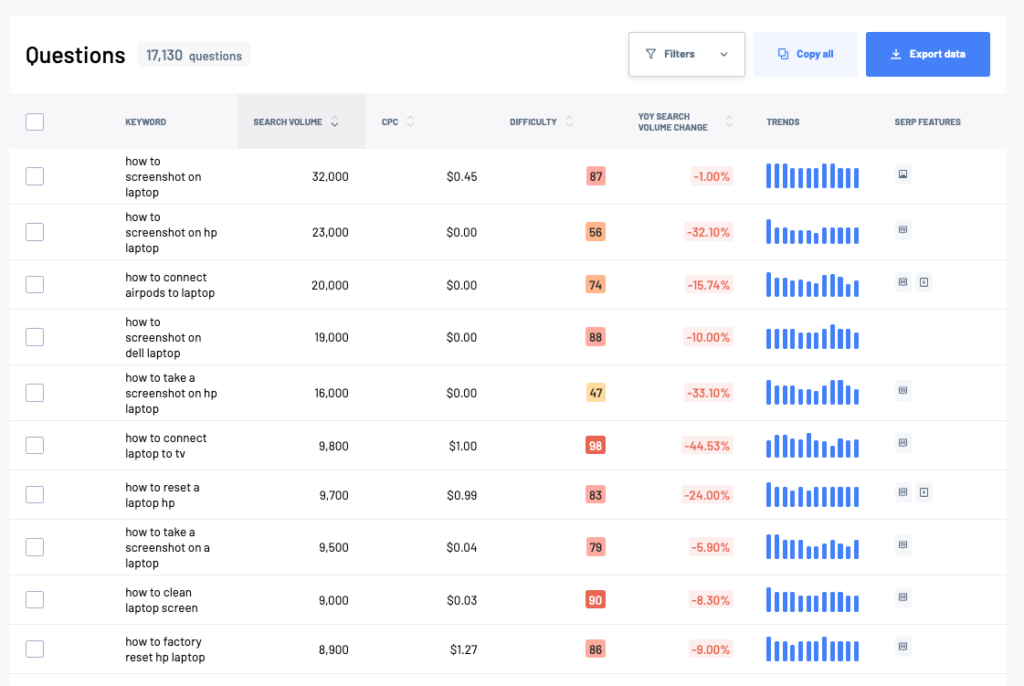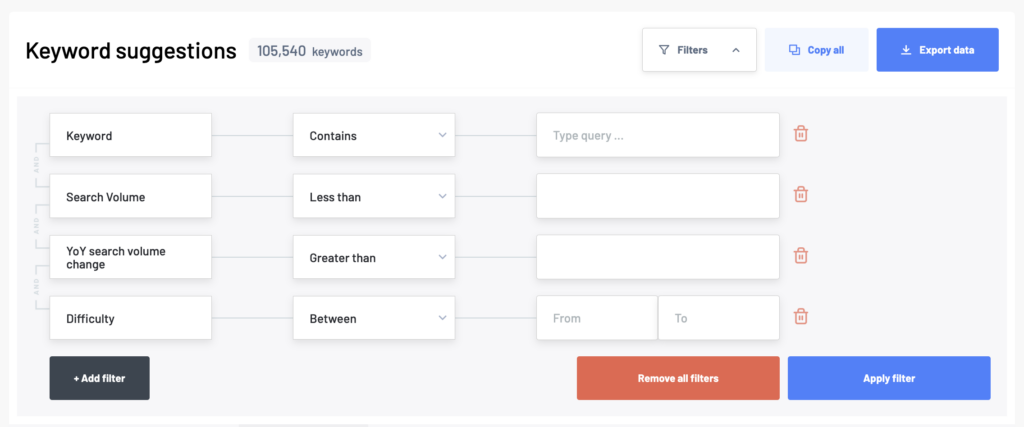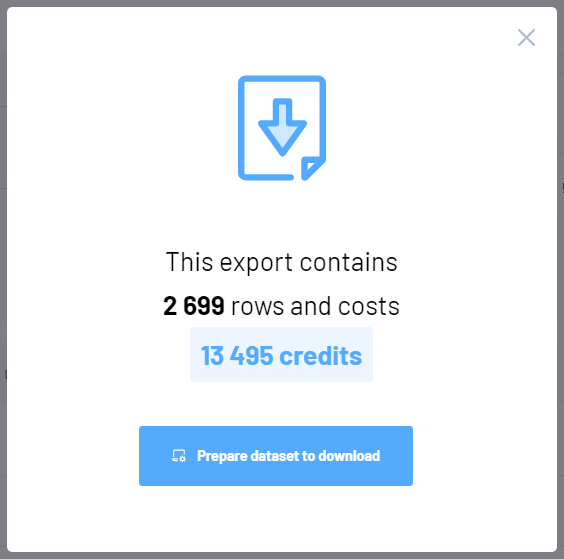Want to know what questions people are asking to find new content ideas and answer your customers’ questions? Try the Questions section of our Keyword Profiler for useful insights into what people are asking about your keywords.
Try Keyword Profiler now:
After adding your keyword to the Keyword Profiler in the Questions section, you can review the following data:
- Keyword search volume – average monthly search volume on Google (during the previous 12-month period).
- CPC – average cost per click in Google Ads.
- Difficulty – a number that represents the difficulty of ranking for the keyword in the top 10 search results. The higher the number in the difficulty column, the harder it is to rank for the top positions.
- YoY Search volume change – a percentage value that represents the percentage of year-over-year change comparing the monthly search volume of the last month with the same month of the previous year.
- Trends – search volume of the keyword in individual months searched within the last 12 months.
- SERP features – this column displays a list of SERP features that appear in the search results for the given phrase.
Try Questions section:
Questions data overview
After analyzing your keyword, you will be able to see its data overview.
You can gather useful insights such as keyword search volume, CPC, search volume YoY comparison, or trends that we described above.

This section provides a quick overview of your keywords.
Questions
Below the keyword data overview is a table of all questions related to your query.
There are also three boxes at the top of the table that contain a data summary of all questions:
- Number of suggestions
- Total search volume of suggestions
- Average CPC
In the table below, you can find the following information for each suggested search query:
- Search volume
- CPC
- Search volume (YoY)
- Trends

What data does the Keyword Profiler use?
Question suggestions are taken from Marketing Miner’s internal database, which collects information from clickstream (third-party data about user behavior) and Google search results of popular keywords for each country. This database is updated on a monthly basis.
The current keyword database in Profilers now contains:
- United States – 165 million keywords
- United Kingdom – 152 million keywords
- Czech Republic – 39 million keywords
- Hungary – 9 million keywords
- Poland – 29 million keywords
- Slovakia – 8 million keywords
The keywords from Marketing Miner’s database are not sensitive to capitalization, word order, or diacritics.
Filters
Above the table on the right is the Filters button, which filters the results according to the following columns:
- Keyword – contains/doesn’t contain
- Search volume – less than/greater than/between
- YoY Search volume change – less than/greater than/between
- Difficulty – less than/greater than/between

Exporting questions
You can download the entire list of question suggestions in Excel format by clicking the Export Data button. The report charges 5 credits per keyword to download.

How to work with question suggestions data
After you download all related questions data to your keywords, you can remove any suggestions that are not relevant to your website and work with them further in your Keyword research to identify:
- Keyword opportunities – enter the queries you’ve missed into the Landing Page miner to see if any pages already cover these keywords.
- Your pages ranking for irrelevant queries – it’s important to monitor not only queries that your site doesn’t cover, but also the keywords for which your site ranks with pages that are irrelevant.
- High potential keywords – Identify keywords with high search volume but low competition, so-called low-hanging fruit keywords. To identify such keywords, we recommend adding another column of keywords to your spreadsheet and calling it Opportunity Score. Then add the following formula Search Volume/(Competition +1). The higher the number, the better the performance. This is because more searched keywords with less competition are ideally what you want to achieve. To find out keyword difficulty, use our SERP competition miner.
- Optimizing for featured snippets – Featured snippets appear fairly frequently, depending on the type of question being asked. Try to optimize your content for featured snippets to answer questions that your audience frequently asks on Google.
